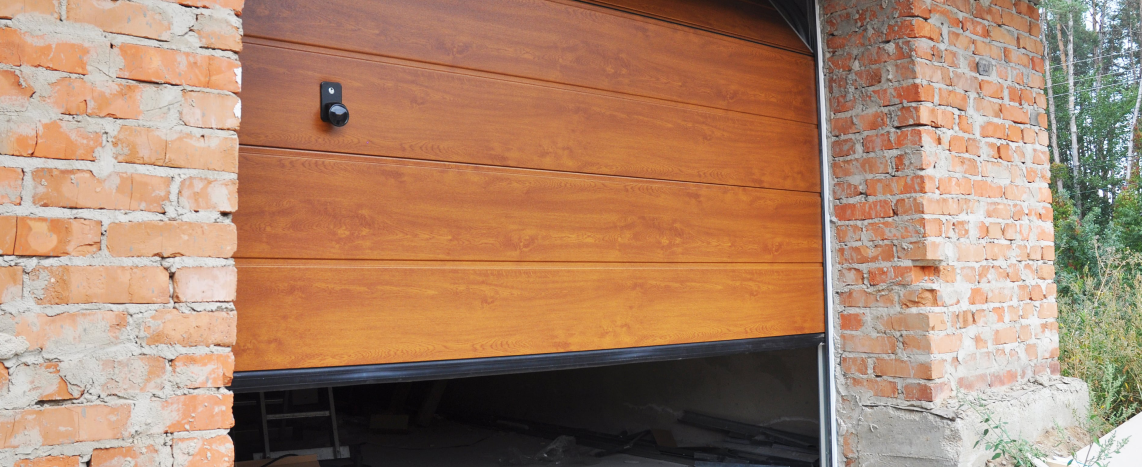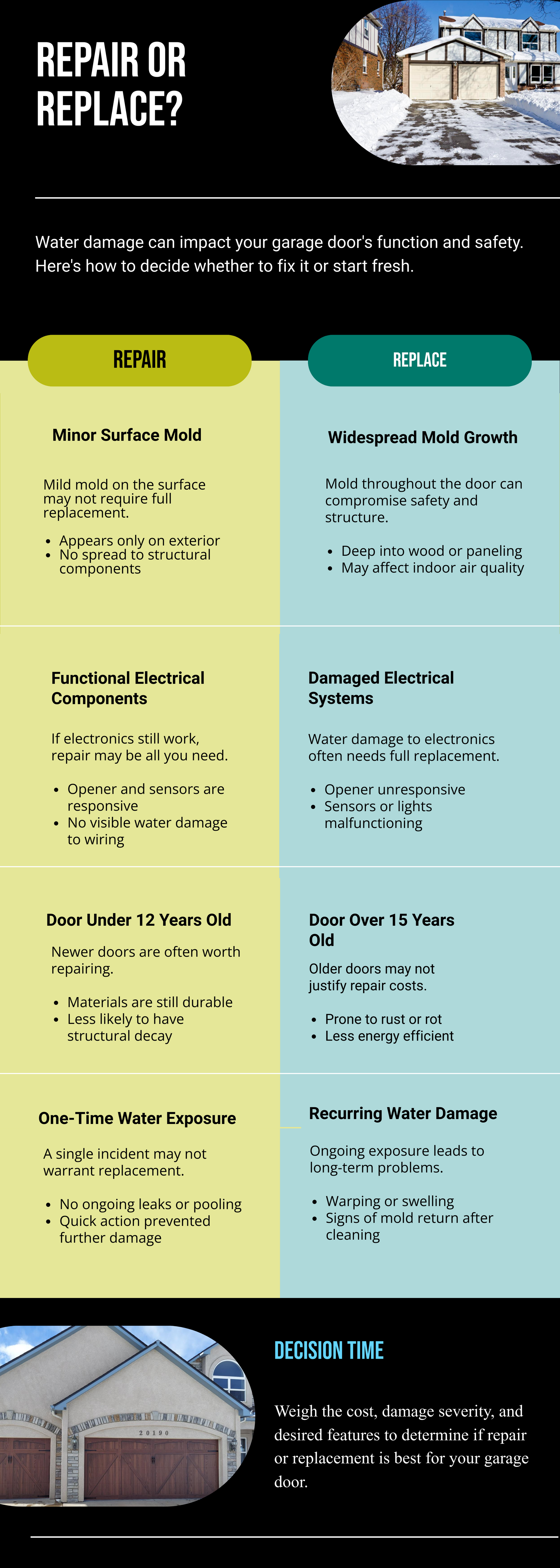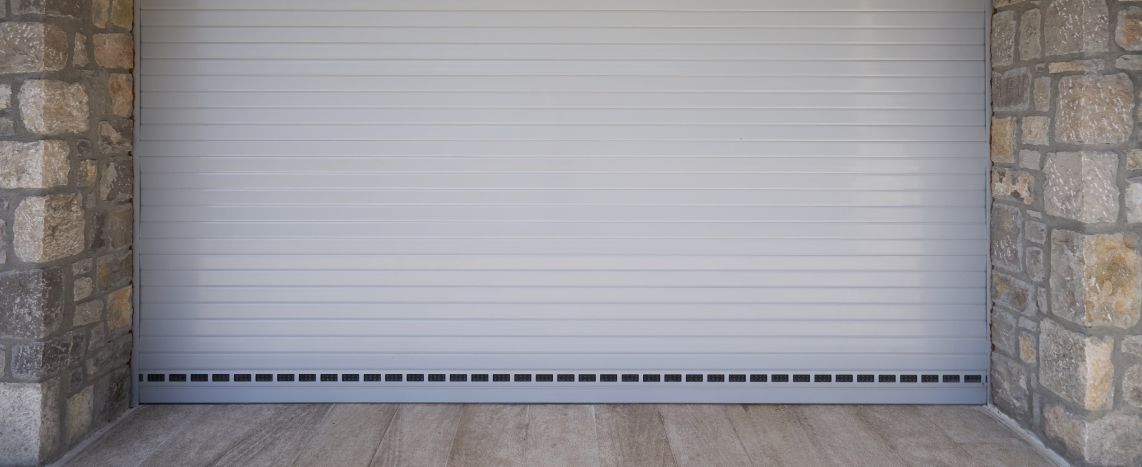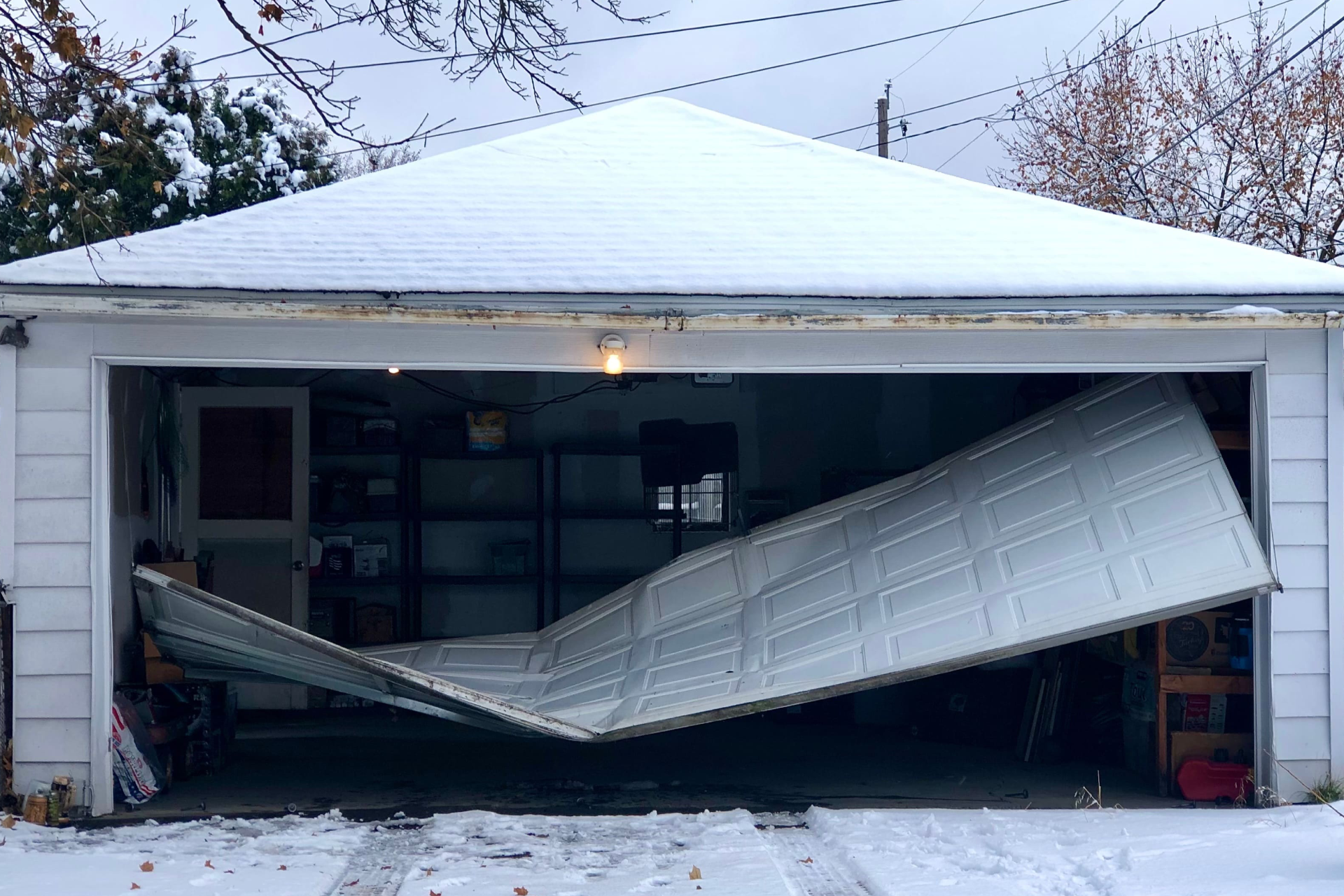Your Ultimate Guide To Garage Door Damage and Repair
We often forget about our garage doors in the long list of what feels like constant, home-related repairs and remodels. Homeowners have become accustomed to the convenience and efficiency of automatic garage doors. So much so, in fact, that we go about our business without taking much notice of them until something goes wrong or someone is severely injured. Here is a comprehensive guide to garage door damage and repair to help ensure your family's safety.
Common Garage Door Problems and Repairs
If your garage door isn’t operating the way it should be, there are a few methods for troubleshooting common problems you may face and simple repair solutions you can try:
Frozen or Unresponsive Garage Doors
There are a few ways to troubleshoot a garage door that isn’t responding:
- Check the batteries in your remote
- Ensure the remote is programmed correctly.
- Make sure the circuit breaker hasn’t tripped
- Examine the wiring and ensure all wires are intact and connected properly
Garage Door Doesn’t Close All the Way
If your garage door won’t shut completely, these issues may be to blame:
- The track may be overused and in poor condition
- Check if your remote control works roughly 6 to 8 feet away. If it doesn’t work, you may need a new controller battery.
- If you are having problems with your garage door opener, you may need to ensure that it is properly secured to the wall, connected correctly, the screws are all firmly tightened, and there are no loose wires.
- If your garage door isn’t opening properly, it may also indicate an issue with the circuit breaker.
Garage Door Closes, Then Reopens
If your door opens again right after closing:
- Blocked or damaged sensors may cause the opener to reverse.
- Maladjusted or broken springs can affect the closing function.
- Damaged tracks or worn hinges may prevent a full and secure close.
- Opener sensitivity settings might be off; check and adjust as needed.
Garage Door Isn’t Opening Evenly
If the door rises or lowers unevenly:
- This may indicate that one side of the door is higher or lower than the other.
- Place a level on top of the track to check for balance.
- Adjust the track until the level shows a straight line or consult a technician.

When is Garage Door Damage From Water Too Bad for Repair?
Strong weather conditions, like heavy rains or flooding, often lead to water damage on garage doors, but when is the damage too severe to repair? Repairing is usually the preferred and more cost-effective alternative to replacing your garage door. Still, there are a few instances where the garage door damage may be too far gone, and a replacement garage door will be necessary. Some of these include:
Mold Growth
A moldy garage door can be more than just a health hazard. If mold has started to grow on your wooden garage door, it could potentially spread to other areas of your home, causing serious damage.
Door Won’t Open or Close
If you find that your garage door is stuck and will not open or close after recent water damage, it could be due to an electrical fault. If your garage door is unable to close it exposes its contents to potential thieves, and if it’s unable to open, it creates a potential fire hazard. Either way, it should be sorted out as soon as possible.
Damaged Electrical Components
If any electrical components of your garage door have suffered water damage, replacement should be considered as soon as possible. Whether this damage is to the electric garage door opener, the sensors, or the lights, replacing the damaged component is crucial to the functionality of your garage door.
The Door Is Over 15 Years Old
If your garage door is older than 15 years, it may be time to cut your losses and replace it. Garage doors made of wood may be damaged or rotten, and metal doors may be rusty. New doors are made to be more durable and moisture resistant, often safer, and they can save homeowners on energy costs.
Tell-Tale Signs That Your Garage Door Motor Needs To Be Repaired
If your garage door has been working properly and hasn’t had previous motor-related issues with opening and closing, it is easy to become frustrated. Luckily, there are a few tell-tale signs that could indicate problems with your garage door motor:
Slow Movement
Slow garage doors could indicate a need to seek professional repairs for a number of reasons.
Common causes include:
- Old age
- Wear and tear over time
- Insufficient lubrication
- Garage door programming (it may be set to open slowly)
Jerky or Uneven Movement
If your garage door jerks while it is opening or closing, but there are no external contributing factors (like inclement weather), it could be a reason for concern.
This issue can lead to:
- Rollers going off track
- Hinges loosening
- Screws becoming unstable
- Additional strain on the motor
Unusual Noises
Strange noises from your motor, especially if they occur suddenly and frequently, could be a sign of problems with either the motor itself or other parts of your garage door.
Possible causes include:
- Lack of regular lubrication (especially if you hear squeaking)
- Motor wear or internal mechanical issues
- Loose components within the system
If your garage door has gone off its track, it may be due to an external force (like a car knocking it), a broken spring, or a snapped garage door cable. Regardless of the cause, ignoring the problem could result in serious injuries.

How to Prevent Garage Door Issues
Garage doors are one of the most-used components of a home, yet they often go neglected until something goes wrong. With regular upkeep and attention, you can avoid many common issues before they become costly problems. Here’s how to proactively maintain your garage door and extend its life:
1. Schedule Regular Inspections
Having a garage door professional inspect your system once or twice a year can catch small issues before they escalate. A trained technician can assess wear, alignment, and safety mechanisms, ensuring your garage door continues to operate smoothly and securely.
- Detect worn or damaged parts early
- Ensure safety features are functioning correctly
- Prevent unexpected failures and costly emergency repairs
- Extend the overall lifespan of your garage door system
2. Lubricate Moving Parts
Friction is one of the most common causes of wear and noise in garage doors. Applying a silicone-based lubricant to key moving components reduces stress on the system and helps everything run quietly and efficiently.
- Lubricate rollers, hinges, springs, and tracks every 6 months
- Use a non-greasy, silicone-based garage door lubricant
- Avoid over-lubricating or using motor oil/WD-40
- Reduces noise and mechanical strain
3. Check and Align Safety Sensors
Garage door sensors prevent the door from closing on people or objects. If these sensors are dirty or misaligned, your garage door may not close properly, or worse, become a safety hazard.
- Clean sensors with a soft cloth and mild cleaner
- Ensure both sensors are pointing directly at each other
- Make sure the LED lights on both sensors are steady (not blinking)
- Avoid stacking items near the base of the garage that may block the sensor’s beam
4. Test the Auto-Reverse Function
Modern garage doors come with an auto-reverse safety feature. This system forces the door to reverse if it encounters an obstruction. Testing this regularly ensures your family and belongings stay safe.
- Place a solid object (like a wooden block) under the door
- Close the garage door and check if it reverses immediately on contact
- If the door does not reverse, call a technician to adjust the settings
- Repeat this test monthly
5. Guard Against Water Damage
Water is one of the biggest threats to garage door performance, especially with wood doors or older models. Keeping moisture away from your garage door helps prevent warping, rust, and mold.
- Seal the bottom of your garage door with weatherstripping
- Inspect the seals and replace any that are worn or cracked
- Make sure gutters and downspouts direct water away from the garage
- Keep the base of the garage door clear of snow and debris
6. Tighten Hardware Regularly
Garage doors move multiple times a day, and that constant motion can cause bolts, brackets, and other hardware to loosen over time. Checking and tightening hardware ensures your door stays aligned and secure.
- Use a socket wrench to tighten bolts and screws every few months
- Focus on roller brackets, hinges, and track mounts
- Avoid over tightening, which can strip screws or damage parts
- Listen for rattling sounds that could signal loose hardware
7. Address Small Problems Early
Don’t wait for major issues to get your attention. Unusual behavior like loud noises, slow responses, or uneven movements are early warning signs that something needs adjustment.
- Contact a professional at the first sign of trouble
- Keep a log of recurring issues or changes in performance
- Resolve minor wear-and-tear issues before they grow into expensive repairs
- Stay on top of maintenance for both the door and the opener system
Garage door damage and repair may not be something homeowners think about every day, but staying proactive can save you time, money, and stress in the long run. From recognizing early warning signs to following simple maintenance steps, taking care of your garage door ensures it stays reliable, safe, and efficient for years to come. Whether you’re dealing with minor issues or need professional help, understanding how to handle garage door damage and repair puts you in control of your home’s security and convenience. If you're unsure about your next steps, don’t hesitate to
reach out to
Tri-Lakes Garage Doors for expert support.


